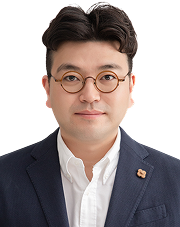
Interview with a professor who won the 2025 Doosan Yonkang Academic Awards – Hepato-biliary-Pancreatic Surgeon’s Division
Kim Kil Hwan, Dankook University Hospital
Q. Once again, congratulations on being selected as the winner of the ‘Doosan Yonkang Academic Awards – Hepato-biliary-Pancreatic Surgeon’s Division’.
A. I am honored to receive this award, especially considering the many outstanding studies beyond my own. First and foremost, I would like to express my gratitude to the Korean Association of Hepato-Biliary-Pancreatic Surgery. I also extend my thanks to the professors from the Daejeon and Chungcheong branches who participated in and supported this research. Above all, I dedicate this honor to Professor Sungho Jo, who took responsibility for this study and provided invaluable support in every aspect.
Q. Among the many fields of medicine, I would like to hear the reason why you chose “Hepato-biliary-Pancreatic Surgery” as your major.
A. HBP surgeries are challenging yet diverse, and even the same procedure can vary with each case, which I find interesting. Compared to other specialties, the prognosis is often less favorable, placing both mental and physical burdens; however, I accept this as my destiny.
Q. It would be grateful if you are able to explain the field you are working on, and the importance of the research.
A. I am also interested in organ transplantation. Although our hospital does not perform many transplants, the presence of a regional trauma center inevitably leads to a few brain death patients, resulting in a considerable number of organ procurements. However, the donation rate relative to the number of brain death patients is not high, prompting me to investigate the causes and to conduct research on efficient management of deceased donors.
Q. Could you please provide an explanation of the award-winning research paper?
A. There are no established guidelines regarding the prognosis of gallbladder cancer based on its longitudinal location. In response, seven hospitals in the Daejeon and Chungcheong regions collaborated to analyze the correlation between longitudinal tumor location and prognosis. The study found that gallbladder cancers located closer to the cystic duct exhibited relatively higher recurrence rates and lower survival rates; however, no direct correlation was established. Based on these findings, we recommend conducting research at the national level.
Q. I would like to inquire about your plans as a researcher and surgeon.
A. There is a regional limitation due to the small number of subjects, unlike studies conducted by large medical institutions. To overcome this, we will conduct research that can be applied to tertiary hospitals in non-metropolitan areas with a new perspective based on previous studies.
Q. Lastly, could you please share a few words of encouragement or advice for your fellow surgeons who are applying for the Doosan Yonkang Academic Awards – Hepato-biliary-Pancreatic Surgeon’s Division’.
A. I never imagined I would receive an academic award. My receiving this award signifies that possibilities exist for all of us. Thank you




